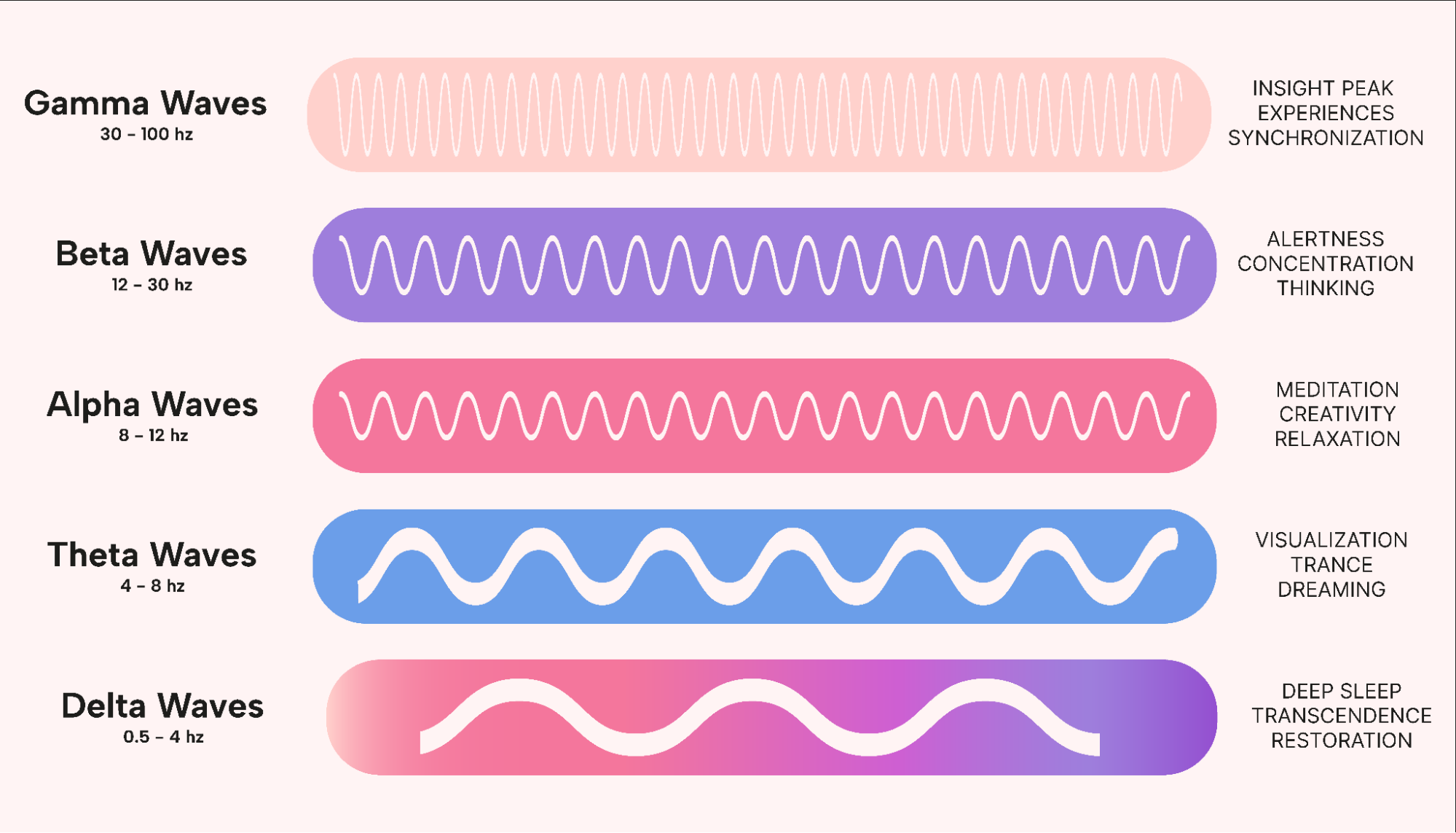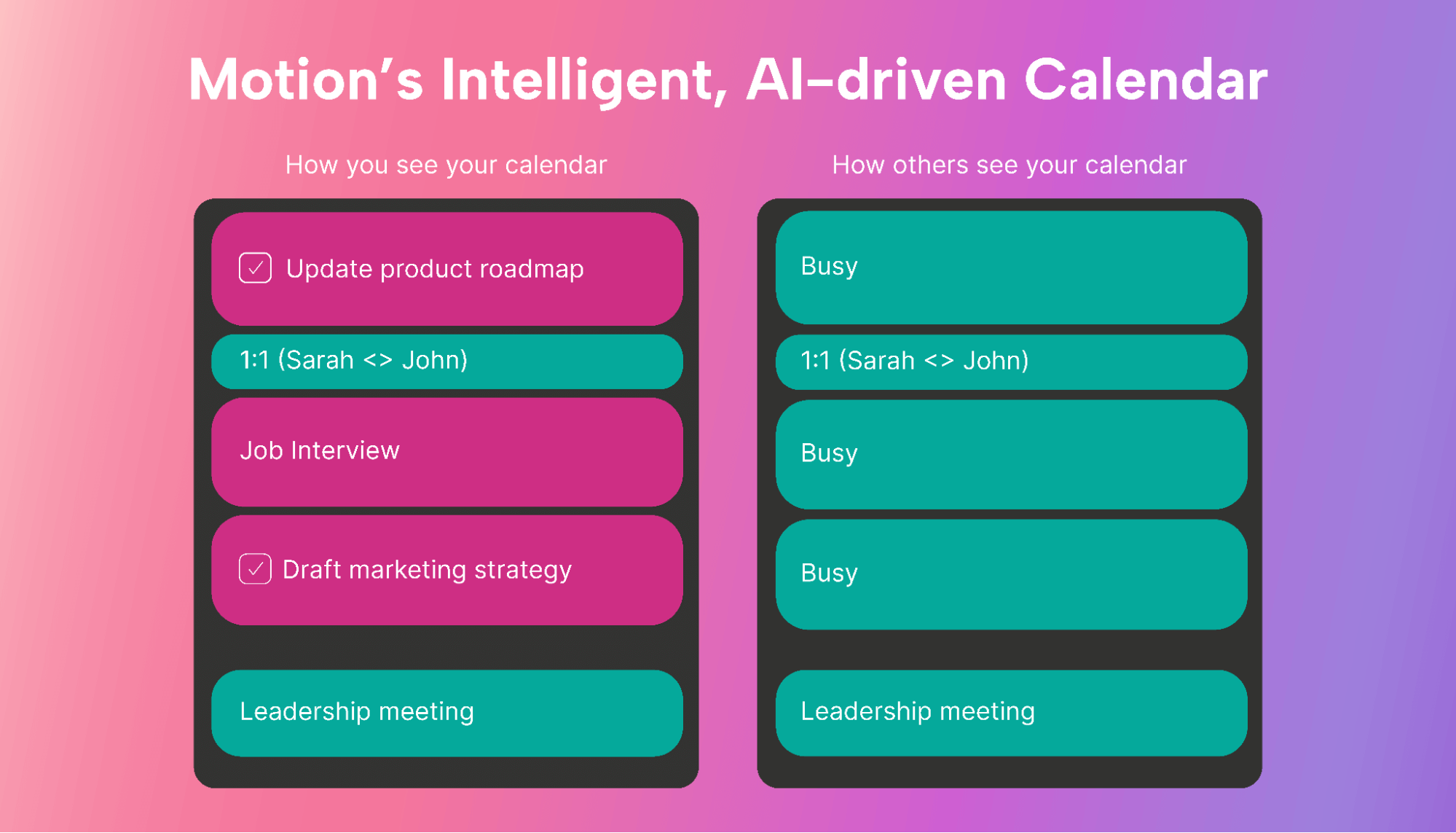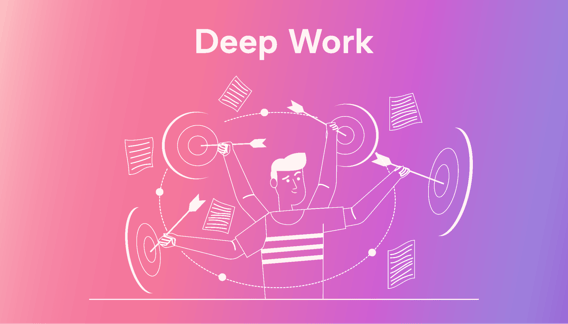During deep sleep, your body fully relaxes and rejuvenates, and your mind lays the groundwork for a new day.
Now, picture deep work: a state of profound concentration in which your mind sharpens and your creativity flourishes while you’re focusing on a single task.
Deep work takes you into the realm of intentional super-concentration, leading to mental regeneration and empowerment.
Let’s dive into the world of deep work, exploring how it can help you increase your creativity and productivity — and how an online calendar can assist you in making the most of it.
What is deep work?
“Deep work” is a concept popularized by Georgetown University Professor Cal Newport in his 2016 book, Deep Work: Rules for Focused Success in a Distracted World. It has since become an important idea in personal development and productivity literature.
Deep work refers to the practice of concentrating on a cognitively demanding task without distraction.
This type of work is often associated with creativity, critical thinking, and problem-solving.
It can lead to a high-quality output in a shorter amount of time than regular mental states.
A brief history of the deep work idea
Well before Newport coined the term, many historical figures, including authors, scientists, and artists, practiced forms of deep work. They would isolate themselves for extended periods to engage in thoughtful, intense concentration on their work.
A good example is Carl Jung, who, after a visit to India, added a room for concentrated work to the retreat he was building in Switzerland. He said, “In my retiring room I am by myself. I keep the key with me all the time; no one else is allowed in there except with my permission.”
 |
Newport outlined the idea of deep work as a reaction to the growing distractions of modern technology and social media. He argued that the ability to engage in deep work was becoming increasingly rare and valuable.
This concept has since been embraced by various professionals as a method to increase their productivity and creativity. It has influenced work culture by encouraging intentional, distraction-free concentration and reducing reliance on multitasking.
Though deep work may not be suitable for all tasks or jobs — you wouldn’t want your dentist to slip into a deep work state while filling your tooth, for instance — its core principles have been adapted and refined to fit various work environments and individual needs.
The brainwave science behind deep work
The deep work idea isn’t just a fad; it’s firmly rooted in brainwave science.
Brainwaves come in four main types: beta waves, theta waves, delta waves, and alpha waves. Each of them performs different functions.
 |
Beta wave frequencies are generated during our normal waking state. Their visual pattern, characteristic of the thinking mind and our cognitive capabilities, is quite jagged. It becomes even more irregular during times of restlessness and anxiety.
Theta and delta waves represent the subconscious (drowsiness) and unconscious (sleep) states, respectively.
Alpha waves are the passageway between these different states. They form when we begin to pay less attention to outside impressions — the distractions — and become more focused.
In an alpha state, the brain is capable of calm, steady, high-level performance. This is where deep work kicks in.
The principles and practices of deep work
In this section, we touch on the main principles and techniques found in Newport’s system — which you can use both at work and in your personal life.
1. Work deeply
Newport organized his approaches to deep work into four sets of principles that he called philosophies. Here’s a summary:
Monastic philosophy
This approach involves a radical reduction or complete elimination of time spent on shallow obligations. It’s about creating a situation in which you can spend most of your time in deep work.
 |
This deep work ethic is suitable for authors, researchers, and other professionals who can dedicate large chunks of time to solitary work.
Bimodal philosophy
In this deep work routine, you divide your time into clearly defined portions. Some of these are completely dedicated to deep work — like staying highly focused on the “urgent and important” tasks in a priority matrix — while the rest are left open for everything else.
For example, you might dedicate whole days or weeks to deep work and then shift to other activities that didn’t get done during the deep work cycle.
Rhythmic philosophy
This approach involves creating a routine in which you engage in a few deep work hours at the same time every day, such as in the morning or evening. Building a habit of engaging in these dedicated periods of time makes slipping into a deep work state easier.
Journalistic philosophy
This approach is named after journalists’ need to fit deep work into their unpredictable schedules whenever they can effectively do so. This variant requires the ability to switch into deep work mode at a moment’s notice.
If you’re considering trying out deep work, think about which of these approaches best fits your own work style and professional circumstances.
2. Embrace boredom
Newport makes the case that we have to learn or relearn to not let ourselves be distracted by the many stimuli that come our way at every moment of the day.
 |
He maintains that improving your ability to resist constant distractions, even when you’re not working, strengthens the mental muscles you need for deep concentration. Intentionally avoiding quick distractions, like checking your phone, improves your ability to focus.
3. Quit social media
Newport suggests that minimizing social media use — or quitting it entirely — can also significantly reduce distractions. This naturally leads to more time and mental energy for deep work.
The extent to which you can or should reduce your social media use will vary according to your personal and professional needs, but even a 50% reduction will give you more quality time for meaningful pursuits.
4. Drain the shallows
Shallow activity refers to non-intellectually demanding tasks — or tasks that don’t require intense focus.
Newport suggests scheduling your day into blocks, including shallow work blocks, so you can concentrate more energy on your deep work tasks.
Here are two techniques to try:
- Plan each segment of your workday to avoid drifting into shallow tasks and have more opportunities for deep work sessions.
- Evaluate the key activities in your workday to understand what genuinely requires deep, focused effort. Then, make room for these sessions in your schedule.
5. Use rituals
Creating a deep work ritual can signal to your brain that it’s time to focus. For example:
 |
- Dedicate a specific location to your deep work. Going there will tell your mind you’re now getting ready for deep work.
- Select a certain time of day for deep work, and stick to it religiously. This, too, will create a deep work habit that signals it’s time for unbroken concentration.
- Use pre-work rituals, like exercise or meditation, to get yourself into the right mindset for deep work.
6. Set clear goals and deadlines
Goals and deadlines provide direction and motivation for deep work.
Breaking larger goals into smaller, actionable tasks and setting specific deadlines will help you schedule your deep work sessions and maintain focus and momentum.
7. Measure success
Create meaningful metrics to gain insights into the success of your deep work. For instance, keep track of the time you spend or the progress you make toward your goals while using deep work techniques.
Applying these principles can help you create an environment and mindset that supports deep, focused work and leads to increased productivity, creativity, and true fulfillment.
Using Motion’s online calendar for deep work scheduling
When you’re aiming to perform deep work, a smart online calendar like Motion’s AI-driven intelligent calendar can be an invaluable tool.
 |
With the calendar’s help, you can structure your day into specific time blocks designated to deep work, no matter which approach you take. For instance:
- If you’re experimenting with the monastic philosophy, you can easily allocate time for deep work by creating large time blocks in your calendar that are completely dedicated to it. Should your plans change, you can simply drag and drop them to rearrange your schedule.
- If you’re drawn to the bimodal philosophy or the rhythmic philosophy, the calendar’s functions make it easy to set repetitive time blocks for deep work throughout the week or month. Once they’re there, they’ll provide a firm framework through which you can keep your deep work on track.
- If your work circumstances sound more like the journalistic philosophy, Motion’s ability to rearrange your entire calendar when you make one change will help keep you from being swept away from your deep work ideal.
Of course, the calendar also lets you set up reminders and notifications so that you won’t forget your commitment to deep work activities. A timely notification can help you transition into the right mindset at the right moment.
Lastly, documenting your deep work sessions in the calendar means you can look back and discover patterns and trends. You’ll find out when you’re most productive and focused so that you can schedule future deep work sessions at optimal times.
Ready to try out the deep work philosophy for yourself?
Deep work can generate intense focus and productivity. It has influenced the way people approach their work and sparked a broader conversation about how best to achieve focus and creativity in an increasingly connected world.
Motion’s AI-driven intelligent calendar can help you with scheduling consistent blocks of time for deep work in your personal or professional life. Start your free 7-day trial today!





